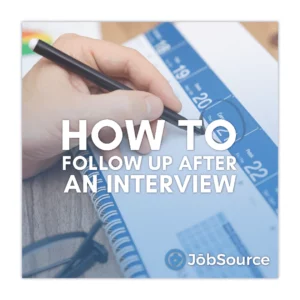Starting a new job is never easy. There are new people to meet, new responsibilities to take on, and lots to learn. It can be overwhelming for anyone. Having a plan for the first thirty days will make a big difference in your success. To make your transition into your new job easy, we’ve created a guide on things to consider and plan for in your first thirty days.
However, before you go through this guide to know what could benefit you in the initial days at work, make sure to get in touch with a reputed moving company and real estate agent Lynchburg, or wherever you are planning to move for the job, in order to get your moving and housing needs to be sorted. People mostly make a switch in a job for better pay or a better work environment, and it certainly makes them interested in a new house or a better living condition. If this is the case for you as well, you should too sort out these needs first.
Now to the guide:
Be Prepared for Starting a New Job
Preparation is everything. When you’re first starting out, there’s going to be a lot thrown at you. You might never know what adventures await you at the new job. For some employees, they may also not know if they are exempt or non-exempt employees (perhaps this site may help determine better). Most recruiters mention such details only after they start the training process. Therefore, if you aren’t prepared for what awaits you, you’re going to quickly find yourself in over your head. Doing things like laying out your clothes the night before, setting alarms, keeping track of onboarding documents, and knowing what you need to do your job, will go a long way in making your first thirty days go smoothly.
Get Some Sleep
Sleep isn’t negotiable. We know that when you’re starting a new job, stress and new responsibilities can make sleep seem like something you’ll have to catch up on later. This is a mistake. Without sleep, you can’t operate at your best. Take the time to refresh and you’ll see that you’re able to come to work ready to do your best.
Eat a Good Breakfast
Breakfast has been shown to do plenty of great things for the body and mind. When you’re starting a new job, breakfast doesn’t seem that important. While you may be new and you probably have a lot going on, you still can’t let your health slide. You’re in this for the long run and skipping breakfast will burn you out in the long run. Prepare something the night before or have something you can eat on the way to work, something easy if you need to be. Just make sure you’re not starting your day hungry.
Dress Well
Nothing is more important than a first impression. Think of these first thirty days as a first impression. Dressing the part is a crucial component of establishing yourself as an authority at work. Put your best outfits on and show off your style. Even if you don’t have the fanciest job out there, dress for the job you want and not the job you have.
Embrace the New
When starting a new job, there’s no avoiding the new. From your environment, coworkers, and duties, at a new job there’s going to be a lot you’re unfamiliar with. You may have certain ways of doing things that are different than your new job. Rather than fight this, embrace it. A new job may teach you something you didn’t know or show you a better way to do something. The more you lean into the new, the better you’ll do in your first month on the job. Apart from facilitating interaction with coworkers, ensure that your company takes the employee onboarding process seriously. This is because, according to onboarding statistics, many businesses struggle with the employee orientation process. A company should, ideally, provide all necessary training materials, acclimate new hires to the company and culture, and provide an ongoing support system that ensures their growth within the organization. Many businesses, however, are unconcerned about these issues and immediately burden new employees with responsibilities that may sap the new employee’s interest.
Set Goals
Setting goals is something we often think of doing once we’re established at a job. However, this shouldn’t be limited to later. When you’re starting out, setting goals is a necessity. Not only will you make progress early on, but you’ll also shorten the learning gap. These goals will also show your coworkers that you get things done. The organization will help you keep track of these goals and get them accomplished one at a time.
Know your Team
When you’re the newbie at work, shyness is par for the course. Don’t let your shyness hold you back. Getting to know your team and coworkers quickly is important. You’ll skip the awkward adjustment period and get started getting your job done. Better yet, you become more personable and approachable. Ask out coworkers to lunch, stop by and introduce yourself, send an email out letting people know who you are. Little interactions will quickly let people get comfortable with you and are something even the shyest among you can handle.
Avoid Gossip
Avoiding gossip is always a good idea. This is especially true when you’re starting a job. You don’t truly know your coworkers yet and you’re still establishing yourself. Getting roped into gossip will only tarnish your reputation before you even have a chance to establish one. Treat everyone with respect and look to make as many positive connections as possible. As a new employee, you want to have as many people like you as possible. As your career grows, you’ll be seen as someone honest and above the petty politics of the office.
Be Curious
At a new position, there’s no substitute for curiosity. Learn everything you can about the new company and your position. Go out of your way to ask coworkers about things. Learn what they do, learn how the company operates, and learn what the goals are not just for your department but the brand as a whole. The more you learn and the more you embrace your curiosity, the further you’ll go in your career.
Be Open
Closing yourself off when you’re starting a new job is a bad idea. Open yourself not only to new ideas and new responsibilities, but also to challenges, critiques, and improvements. No matter how good you are, you’re going to mess up occasionally. Be open to those setbacks and learn from them. Likewise, learn and examine your successes too. What did you do that paid off? Listen to what others are saying too. Also, don’t hide your past jobs, personal experiences, criminal records, etc., since an employer might run an nsw police check, which can affect your new job. Being honest with your employer can also improve your reputation with the boss and help you in climbing up the corporate ladder. This is a new start, open yourself up to whatever comes your way.
Starting a new job comes with a lot of changes. Let this guide help you make the most of your first thirty days. We believe in you and know you’ll make a great first impression. If you’re looking for a new job or change in career, visit JōbSource postings here online or come into one of our branches today!


